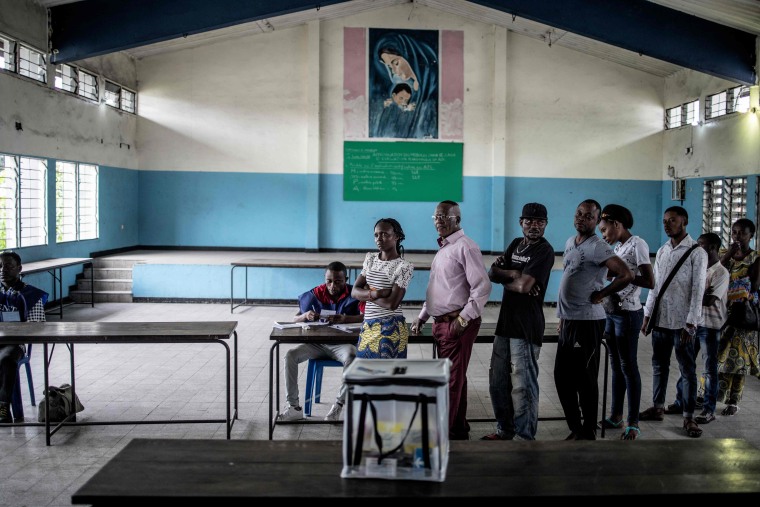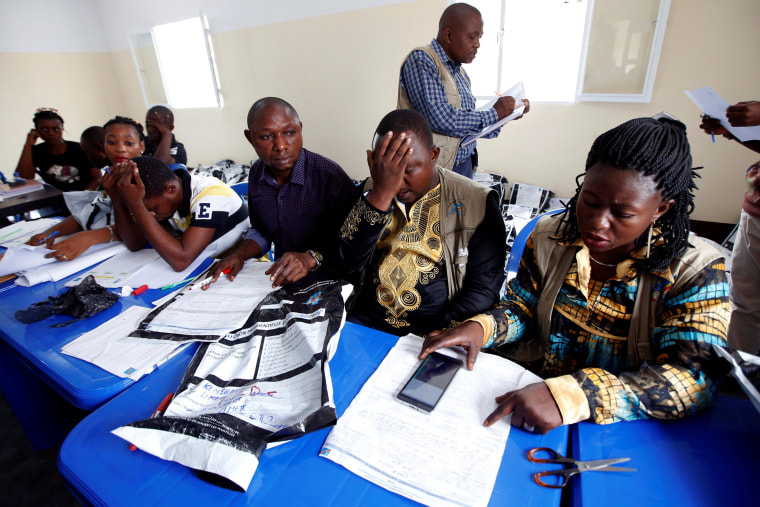President Donald Trump has told House Speaker Nancy Pelosi that 80 military personnel and "appropriate combat equipment" were being deployed to Central Africa amid fears of election violence in Congo.
According to a letter dated Friday, the troops sent to Gabon would be tasked with securing U.S. citizens and diplomatic facilities in neighboring Congo in the event "violent demonstrations" broke out in the wake of a presidential vote.
Congo, a vast and underdeveloped country rich in the minerals that power mobile phones and laptops, has faced repeated civil wars involving numerous armed militias. Some 40 million people had been registered to vote but at the last minute around 1 million were barred as the electoral commission cited a deadly Ebola virus outbreak.
The vote will decide the successor to current President Joseph Kabila, who took office in 2001 after his father, Laurent Kabila, was assassinated. If there is no violence, the election would stand as Congo's first peaceful democratic transfer of power since gaining independence from Belgium in 1960.

The country's first free and fair election was held in 2006, with Kabila declared the winner. The U.N. has described it as one of the most complex votes the organization has ever facilitated.
More than 16,000 U.N. troops remain stationed in the country as part of a mission to maintain stability.
U.N. Secretary-General's spokesman issued a statement ahead of the recent vote encouraging citizens to "seize this historic opportunity" while warning all political actors to "[refrain] from any form of provocation."
However, since voting began on Dec. 30, election observers and the opposition have raise concerns about irregularities.
The African Union election observation mission reported that there were malfunctions of voting machines, late availability of electoral lists and up to five-hour delays for poll openings.
Elections were also postponed in three towns due to an Ebola outbreak, which prompted protests.
Old rivalries between two communities in the western part of the country had also flared up leading into the election. The U.N. reported that about 16,000 people fled clashes within Congolese communities on Friday, seeking refuge in neighboring Republic of Congo.
It's considered the largest influx of refugees from the country in over a decade, according to the U.N. refugee agency. The last major surge happened in 2009 when 130,000 people sought aid during ethnic clashes.
First results from the vote are expected to be released on Sunday. The Catholic church, which holds a great deal of power in the country, has said its data show a clear winner — a comment that has angered Congo's ruling party.
Anticipating growing conflict, Trump said more U.S. military personnel will deploy as needed to Gabon, Congo or neighboring Republic of Congo.

